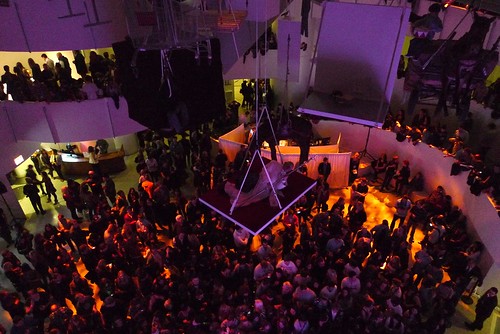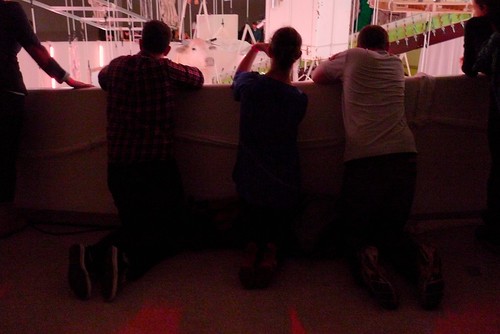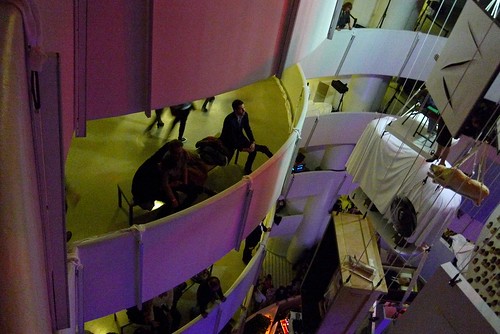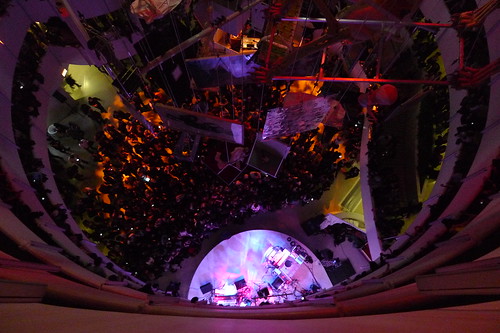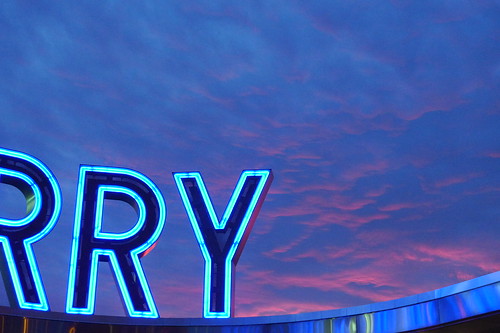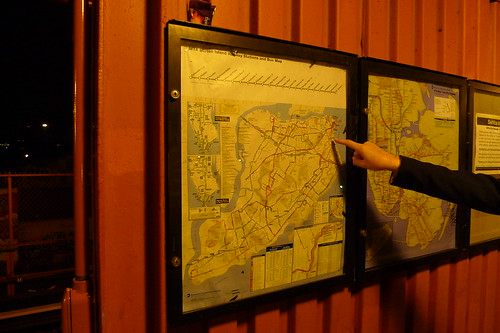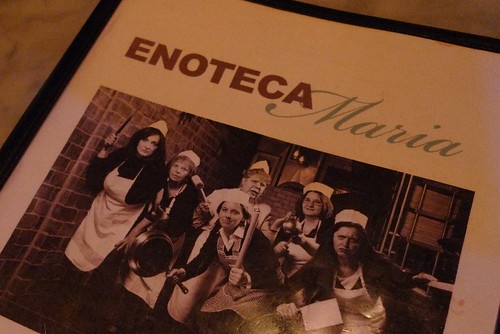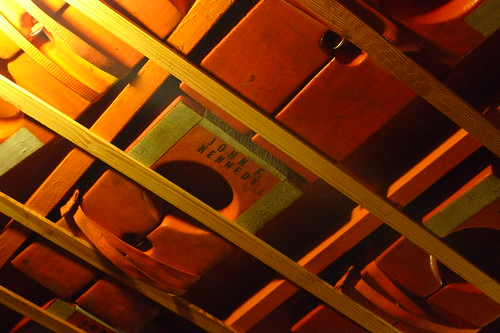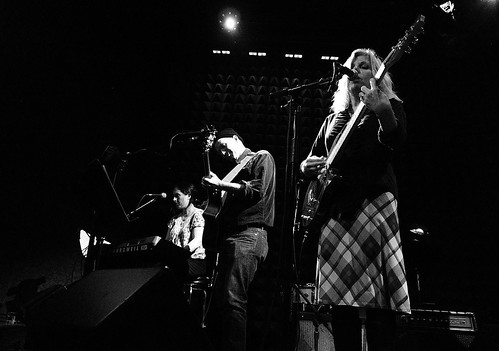11.01.11THUNDERTOME {NOMINALLY-BLOODLESS BOOK CHAT EDITION}: ROUND I
PERFORMER: the magicians (lev grossman)
 here be spoilers; if you haven't read the book and plan to do so at some point, please enjoy this wizard lamp and avert your eyes from the rest of the post. temporarily-actual reading group discussion questions - also containing spoilers - are at its conclusion.
here be spoilers; if you haven't read the book and plan to do so at some point, please enjoy this wizard lamp and avert your eyes from the rest of the post. temporarily-actual reading group discussion questions - also containing spoilers - are at its conclusion.lev grossman went to harvard and yale; he's a prolific
tech journalist, and he's
time's
book reviewer. each of those points is in
his bio, but they don't really need to be;
the magicians is precisely the book you'd expect from a guy who's done time at elite schools, chewed on a bunch of cables, and read a
lot of books. that's both a good thing and a bad thing, i think; some of its biggest strengths (the pitch-perfect tone of the school scenes, the elegant logic of the magical phrasing the students learn in antarctica and the eerie interdimensional neitherlands, the feel of all the literature that gave rise to
this literature) share genes with its faults (quentin is the sort of overeducated douchebag i couldn't
wait to get away from after college, so several hundred pages of him can be rough, and grossman's fluency in all things sci-fi and fantasy can have a too-many-chefs effect that's fatal to emotional connection with his story).
grossman's hero, quentin "brooding in brooklyn" coldwater, is
bizarro harry potter, at least at first: much to his horror, his parents have provided him with a stable and loving home, he has a pair of reliable friends (who have done him the terrible injustice of dating each other), and he's on track to trundle off to princeton after he winds up his reign as the (academic) king of high school. all of this is terrifically unsatisfying, and he pines for the
narnia-esque idylls of
christopher plover's mythical kingdom of fillory, where there are
two aslans (the rams ember and umber), one gets about with the help of
the cozy horse, a living, infantilizing monorail (for my money, the cozy horse is one of grossman's best jokes), and
things mattered in a way they didn't in this world. In Fillory you felt the appropriate emotions when things happened. Happiness was a real, actual, achievable possibility. It came when you called. Or no, it never left you in the first place.
this third-person limited narration (quentin isn't the speaker, but we experience just about everything from his perspective) is pretty challenging for the reader: we have to endure quentin's bottomless self-pity, and we have to work around his world-swallowing self-interest to pick up information about characters and plot points which don't hold his attention. we're also stuck with his emotional vocabulary, which is - high-school boyfriends, i salute you - not the most mature.
Sometimes he burst out laughing out of nowhere, for no reason. He was experimenting cautiously with the idea of being happy, dipping an uncertain toe into those intoxicatingly carbonated waters. It wasn't something he'd had much practice at. It was just too fucking funny. He was going to learn magic! He was either the greatest genius of all time or the biggest idiot. But at least he was actually curious about what was going to happen to him next. For the first time in he didn't know how long he was actually following the action with interest. In Brooklyn reality had been empty and meaningless--whatever inferior stuff it was made of, meaning had refused to adhere to it. Brakebills was different.
on most days i would make much of that take on brooklyn, but in the spirit of the nominally-bloodless book chat, i'll refrain; that's emotional maturity, you see. to be fair, not all of the focus on quentin is problematic; though the life of his mind is the only life he's got,
the magicians fetishizes wizard school far less than the
harry potter books do. i didn't realize how refreshing it was to gloss over huge areas of quentin's education (sometimes literally, as in when he tests out of his first year) without having to page through baroque descriptions of each teacher, class, spell, and magical-slapstick episode he encounters until grossman pointed it out to me; at some point near the end of the brakebills section of the book, someone mentions how silly it is that each of the twenty-odd parts of the students' desks has a special name (a simple, effective reminder that the school isn't the end or even the bulk of the story here).
the educational vignettes we do get are well-chosen; i
loved the sequence in which the students turned into geese and flew to antarctica, and i thought the instruction sequences there were terribly clever. it's no accident that mayakovsky (
a fine name) speaks russian; russian grammar is as subjective as the magic the kids are learning (with variations for everything from time to location to the emotional state of the spellcaster), with prefixes and suffixes of each tense so specific to what surrounds it that you can scramble the words of your sentence any which-way and they'll mean the same thing. well done there, grossman; those drills and the marvelous end-of-term trip to the south pole were worth the price of admission on their own.
lest we get too caught up in grossman's creations, he sprinkles a glib bit of meta over the top of quentin's return to brakebills: "wizard needs food badly," his friend josh* notes. i can't decide whether the
gauntlet reference pleases or appalls me; as when joss whedon & co dropped a
homestar runner reference into the
buffy the vampire slayer finale and
burninated giles, i enjoyed feeling that the writer(s) and i were working with the same cultural tool box...and felt a bit dirty at the same time. in this case, do present-day college students really joke about twenty-six-year-old atari games? am i underestimating the next generation's nerdery? am i old enough to call present-day college students 'the next generation'? let's move on.
speaking of grossman's tool box,
harry potter references aside, there's a lot of the early 20th century in his particular strain of fantasy, and i think it suits him. the beast's appearance in the classroom was equal parts h.p. lovecraft (the explanatory speech the headmaster gives about how beings from other worlds visit ours is
boss) and
magritte; its extra fingers** and the tree branch in front of its face were terrifying, and just right. the girl in the brakebills fountain who showed the unfortunate emily greenstreet how to remake her face was also quite frightening; her malevolence set us up nicely for the vacant,
escherrific spookiness of the neitherlands. somehow those interstices felt more real to me than either the cringe-inducing, post-graduation scenes in new york city (though, to be fair, some twentysomethings do end up in cringe-inducing scenes when in new york city) or the scenes in fillory itself.
on those scenes in fillory itself: the conclusion of michael agger's
new york times review kept coming back to me as i was thinking about what i wanted to say about
the magicians.
Perhaps a fantasy novel meant for adults can’t help being a strange mess of effects. It’s similar to inviting everyone to a rave for your 40th-birthday party. Sounds like fun, but aren’t we a little old for this?
it's an easy observation to make about genre fiction, and - when one considers spectacular works like
buffy the vampire slayer and philip pullman's
his dark materials trilogy - easy to swat down.
the magicians provides both the sugar rush of shallow fantasy and the deep, soulful twang of shrewd allegory, and they're both all over the ember's tomb sequence (a mishmash of grossman's worst and best ideas). poorly-blocked battles lifted from early-nineties role-playing games (a bee, a house cat, and a giant, burning naked guy! better have my mage cast an elemental shield around the party and swap in the warrior's poisoned gauntlets) and an ill-advised
scarface reference at the book's emotional climax? check and check. a heartbreaking sacrifice which highlights the fact that there's no answer here to the "what's magic for?" question,*** and a chilling demonstration of what happens when you can't say goodbye to the cozy horse?**** check and check.
the magicians is, unquestionably, a strange mess of effects - but i can't imagine being too old for it.
hey, you made it to the end of my introduction to the book chat! butterbeer for everyone, or regular beer, or whiskey, if you're gluten-intolerant. feel free to tell me i'm dead wrong, or to ignore me and skip to the points below, or to ignore the points below and skip to your own take on
the magicians in the comments. i'm just glad you're here.
temporarily-actual reading group discussion questions: extra-long edition
01 do you think quentin's unlikable on purpose? or, backing up, do you like him?
02 will you watch fox's drama series adaptation of the magicians (by the guys who co-wrote x-men: first class and thor)? how would you cast it?
03 in an interview with the village voice, grossman mentioned that he lifted evelyn waugh's structure "more or less wholesale." if you've read brideshead revisited, did you feel bits of it in the magicians? (are eliot and janet sebastian and julia flyte? is quentin charles ryder?)
04 had any of you encountered gonfalons (the term, not gonfalons themselves) prior to the magicians?
05 if you have a tattoo, what sort of being d'you think would erupt from it?
06 did the scarface thing bother you? what about the gauntlet reference? is the magicians too meta?
07 when did you realize the beast was martin?
08 from where you're sitting, what does magic represent in lev grossman's world? is it imagination, intelligence, privilege - or something else entirely?
09 will you read the magician king?
*later on, josh is responsible for the horribly awkward meta that is "the hypothetical contents of an imaginary porn magazine for intelligent trees that would be entitled Enthouse." i read that and felt pain for him, for his creator, and on my own behalf.
**slightly-off beast-features, as in soundgarden's "black hole sun" video and jell-o's current "pudding face" campaign, scare the crap out of me; we're not even going to talk about neil gaiman's corinthian.
***poor alice. i don't think she was giving her life for quentin, exactly; i think she became a niffin because it was better than becoming her parents.
****i was initially disappointed that the beast was martin chatwin, but i've come around.
